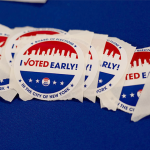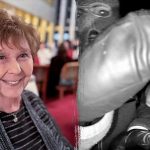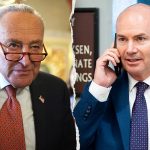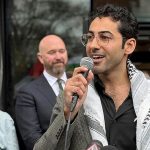A federal appeals court on Thursday revived President Donald Trump’s effort to move his New York hush money conviction into federal court, reopening a pathway for Trump to wipe out his guilty verdict entirely.
In a unanimous ruling, a three-judge panel of the U.S. Court of Appeals for the 2nd Circuit vacated a lower court decision that had twice rejected Trump’s request to shift the case. The judges wrote in a 28-page decision that they “cannot be confident” the trial court properly evaluated whether the Supreme Court’s 2024 presidential immunity ruling requires a closer look at evidence presented during the prosecution.
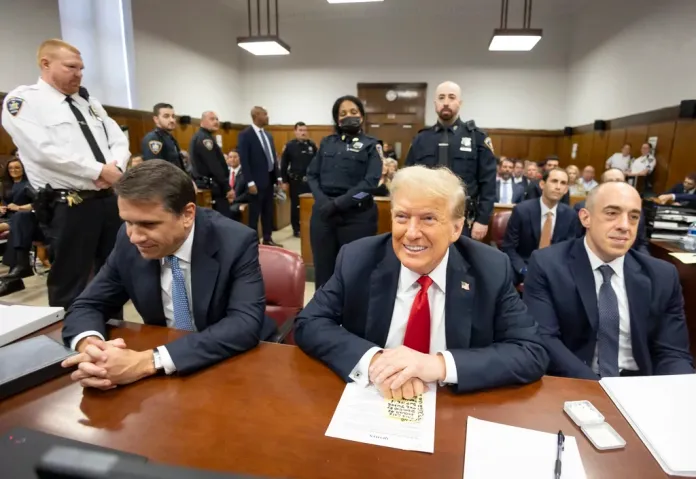
“The court bypassed what we consider to be important issues bearing on the ultimate issue of good cause,” the panel wrote, sending the matter back to U.S. District Judge Alvin Hellerstein, an appointee of former President Bill Clinton, for further consideration and possible hearings.
The opinion stressed the appeals court was taking no position on whether Trump’s strategy should ultimately succeed, only that Hellerstein had not “adequately considered” legal questions surrounding removability and immunity.
Now, Trump has another shot at erasing the conviction that labeled him as the first former president to be convicted on felony charges last summer.
Trump was convicted in May 2024 on 34 counts of falsifying business records over efforts to conceal a $150,000 hush payment to adult film actress Stormy Daniels in the final weeks of the 2016 campaign.
Prosecutors with Manhattan District Attorney Alvin Bragg‘s (D) office argued the concealment, facilitated through his former attorney-turned-political foe Michael Cohen, was part of a broader scheme to influence voters, while Trump maintains he never had a sexual encounter with Daniels and denies illegally routing the money to her.
His attorneys now argue the conviction cannot stand because the Manhattan district attorney’s case relied on exhibits and testimony tied to Trump’s official acts after becoming president — material they say was constitutionally protected and should have been excluded under the Supreme Court’s decision strengthening presidential immunity from prosecution for official acts they make while in office.
“By the time the trial ended, [the prosecution] had rested its case on testimony probing President Trump’s official acts during his first term,” the defense wrote in court papers, calling the case a state-level attempt to convert alleged federal campaign finance violations, which the DOJ had declined to prosecute, into state felony charges.
Prosecutors counter that the allegations involved personal conduct, not presidential responsibilities, and that any overlap with Trump’s time in the White House was incidental to what they argued was overwhelming evidence of guilt.
Trump has long argued that New York state courts cannot fairly judge him and has repeatedly attacked the judge and jury who decided his case. His first attempt to move the prosecution into federal court was rejected before trial, but he says that because the immunity precedent only emerged after the verdict, he has “good cause” to try again.
While the immunity fight resets in federal court, Trump is also appealing the conviction through the state system. His lawyers last week told New York’s midlevel appellate court that the case was “the most politically charged prosecution in our Nation’s history” and should never have reached a jury.
Sentencing in the case was delayed until early this year while post-trial litigation played out, and Trump ultimately received no punishment or jail time as he entered his second term in office.
TRUMP ASKS APPEALS COURT TO OVERTURN HUSH MONEY CONVICTION
The Manhattan district attorney’s office declined to comment on the appeals court’s ruling.
The Washington Examiner contacted attorneys for Trump and representatives for Bragg’s office.


